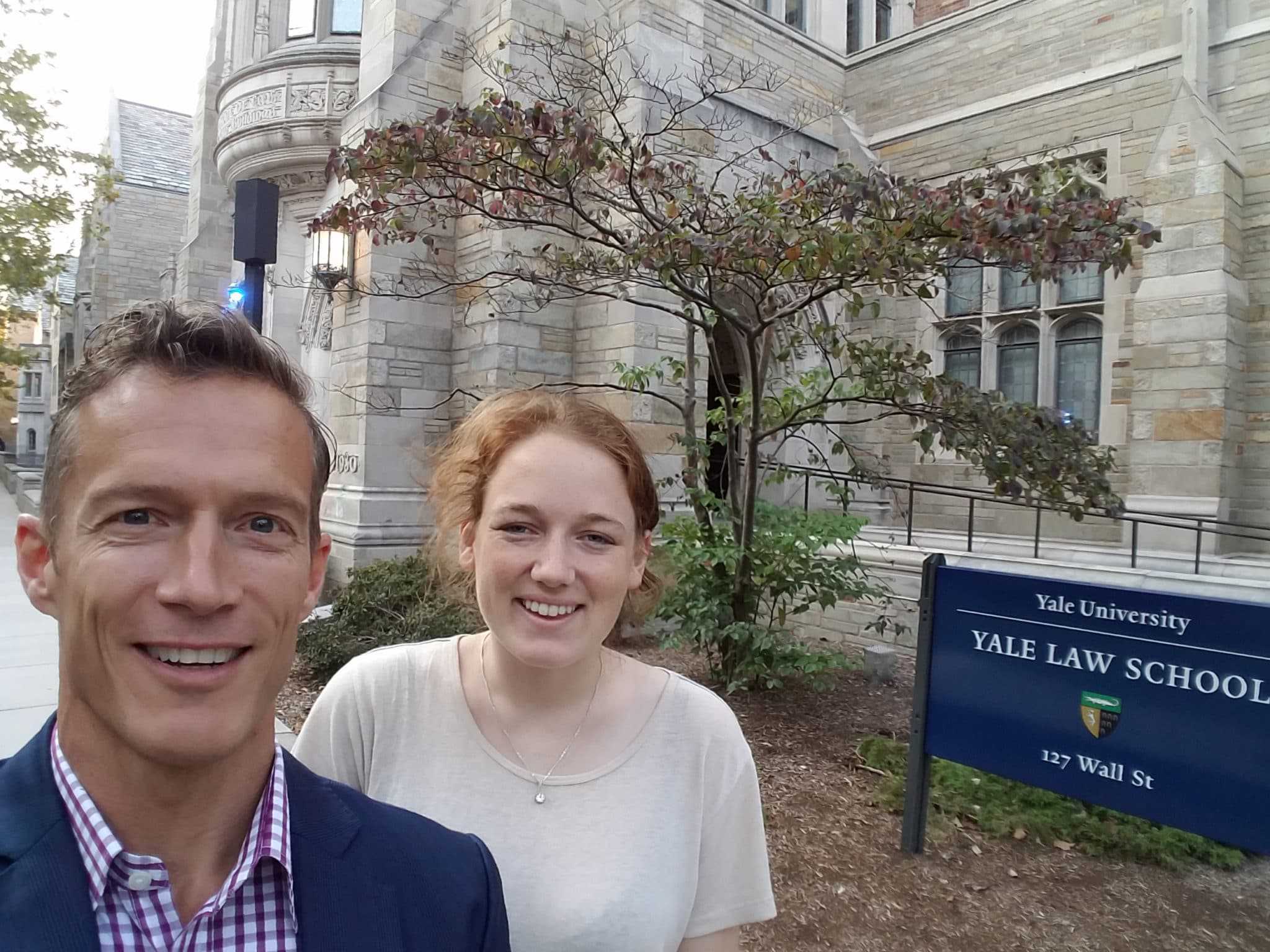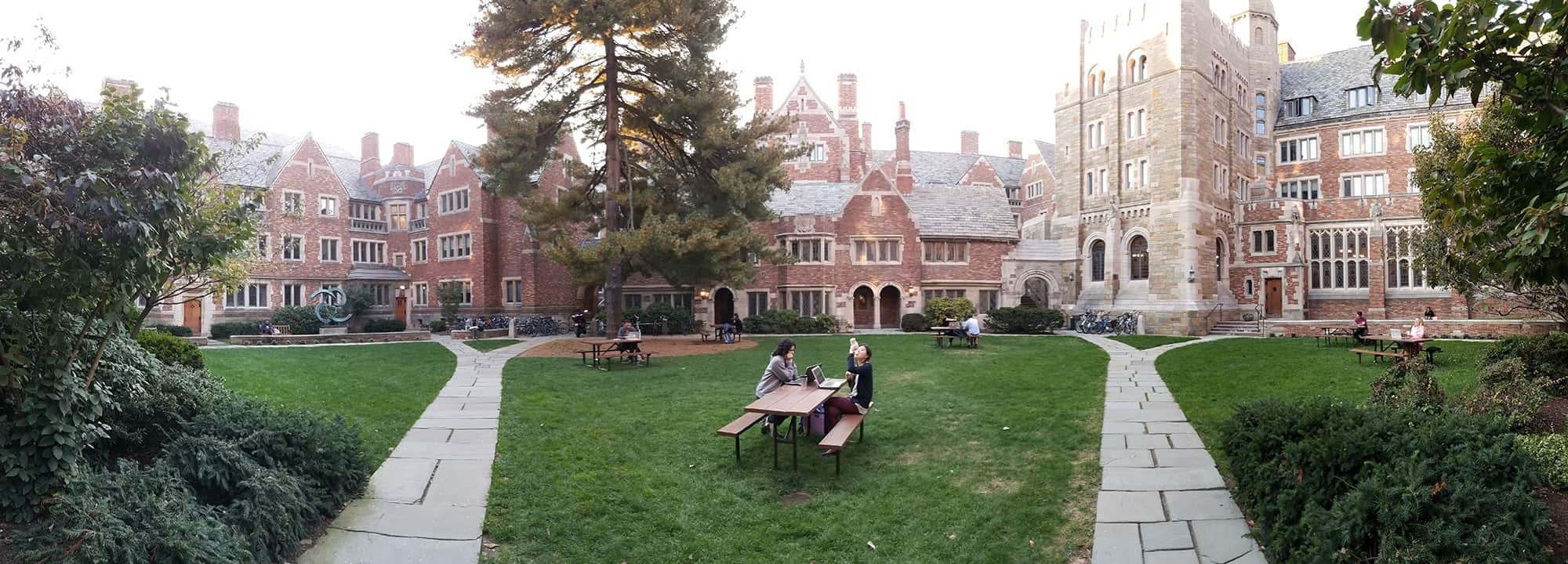
23 Oct 2016 Yale Law Students Keen for Information on ART Law
I had the great honor to present last week at Yale School of Law, along with Professor Douglas G. Nejaime (visiting professor from UCLA School of Law), on “The ‘ART’ of Family Formation: The Law and Ethics of Assisted Reproduction.” The presentation, organized by the Yale Health Law and Policy Society, the Solomon Center for Health Law and Policy, Outlaws, and Law Students for Reproductive Justice, generated lots of engaging conversation and thoughtful questions from the audience of mostly law students and faculty.
Discussion centered largely on the complex legal evolution of parentage over the last several decades in the U.S. and abroad and the practical day-to-day work in surrogacy and egg donation. Students were most interested in how one plans the legal strategy for a case while considering the differing laws of the various U.S. states that might be involved, as well as the laws and procedures of the various countries where intended parents might be citizens and want to register their children born via ART. As an example, intended parents from countries that do not allow surrogacy often travel to the United States for IVF and surrogacy procedures. Their ART attorney must take into consideration the laws of the parents’ country of origin, to which they will one day need to return with their child, as well as the laws of the state(s) where the surrogate resides and where the IVF procedure and birth are to take place. The audience was eager for information about how you create a legal strategy for such complex situations in the absence of legislation and/or case law, as is the reality in the majority of the jurisdictions that have no direct law on point. In fact, ART law continually evolves through the process of developing legal strategies on a case-by-case basis, since the law is always a step behind new scenarios made possible through advances in technology. This is true both locally and internationally as more countries struggle with issues of parentage recognition that fly in the face of their laws, yet must be honored in some way in order to protect and serve the best interests of the children resulting from assisted reproduction and provide legal protections for these families.
All in all, speaking to Yale students and faculty so hungry for information about the ever-groundbreaking field of ART was an extremely rewarding experience.

See more Yale photos on Facebook.

















